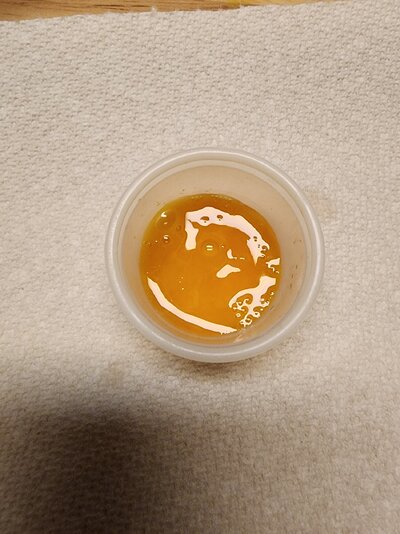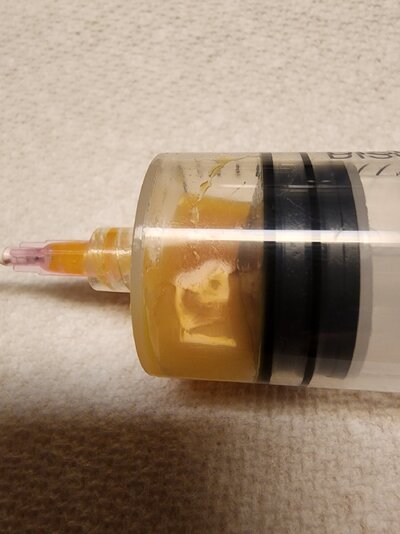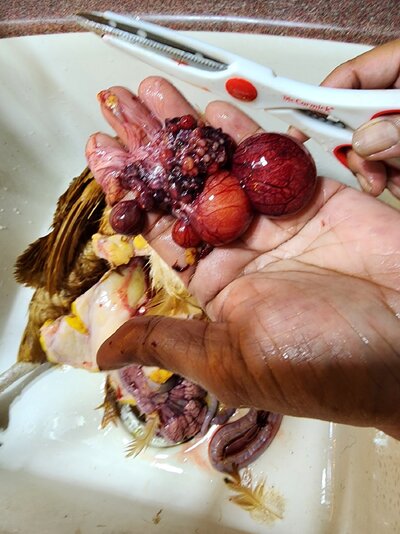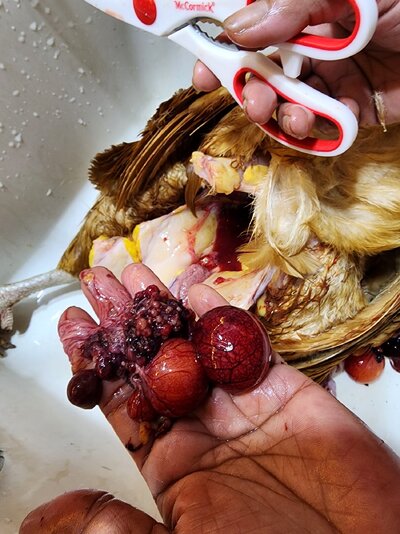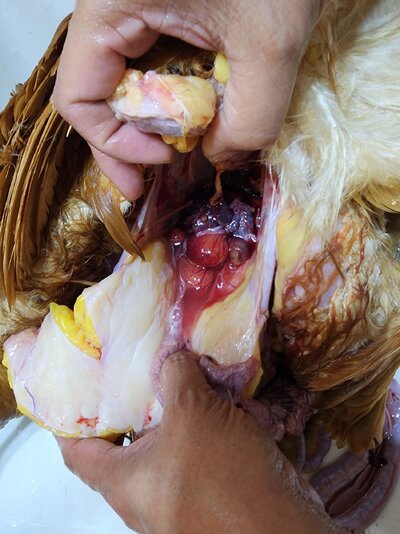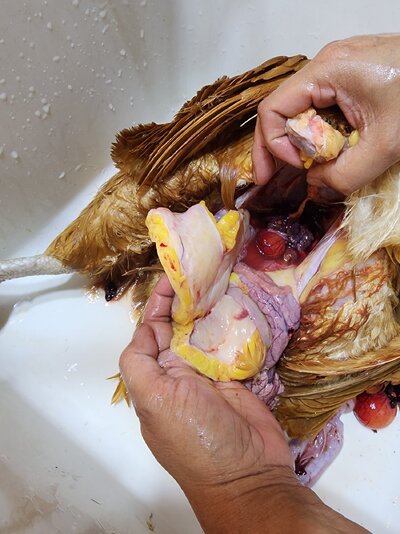I have a 3 year old Rainbow Dixie, she's pretty large. She recently started walking like a penguin, I checked, she is not egg bound. She does not lay often at all. I was thinking water belly since she looks heavy on the bottom end. I tried to drain this morning, I went to the right of the vent and a little lower.
I only got what looked like yellow thick jello. I stopped trying to drain anything. What could that be??? She's eating and drinking but walking like she's squatting with her tail down. Any advice would be great.
I only got what looked like yellow thick jello. I stopped trying to drain anything. What could that be??? She's eating and drinking but walking like she's squatting with her tail down. Any advice would be great.




